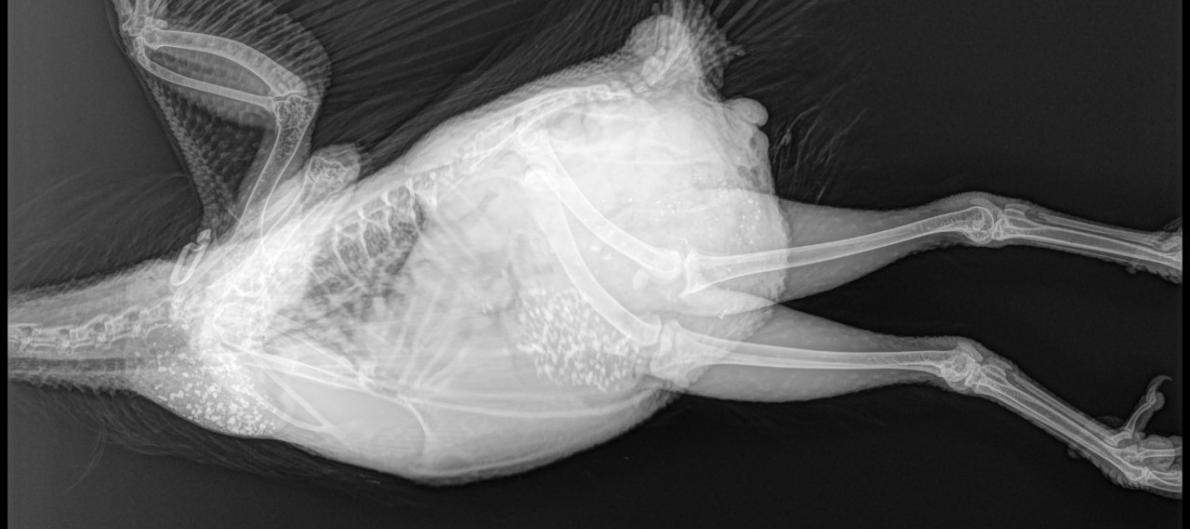
A new method of analysing bone density in live hens could help farmers select the optimum birds with which to breed to improve animal welfare, UK researchers say.
Scientists at the Roslin Institute have developed a digital X-ray procedure that takes around 45 seconds to conduct.
The institute, based in Edinburgh, said this method was practical for hens and poultry workers while delivering reliable, reproducible results.
The novel method enables breeders to consider bone density in their selection of laying hens, which are at risk of fractures from biological changes linked with laying eggs.
Recent advances in digital X-ray technology have enabled researchers to develop their technique to capture and interpret images relating to bone density.
Their method involves quickly capturing digital X-rays of live hens, from which their leg bone density can be calculated, and data digitally shared.
Researchers at the Roslin Institute optimised their method to ensure a clear image in minimal exposure time.
Their approach was validated by comparing results from chicken X-rays with those from analysis of chicken leg bones.
Strong bones offer improved health and reduced risk of fractures in birds that have freedom to move around their environment.
The keel bone, or sternum, of hens is particularly prone to damage and previous research by the same team has shown that leg bone density is genetically related to that of the keel bone, and to fracture risk.
A practical way to measure bone density could also help reduce the number of animals needed for research into nutritional and management aids for bone health.
Professor Ian Dunn, personal chair of avian biology at the Roslin Institute, said: "For many decades, poultry breeders have chosen which birds to breed according to a mix of many factors.
"But it has not been possible to account for bone quality in live hens, and a practical method of measuring bone quality in hens has been unavailable.
"Our method represents a major development to aid selection towards improving bone strength, and health and welfare, in laying hens."
The study, published in British Poultry Science, was supported by the Foundation for Food & Agriculture Research.
